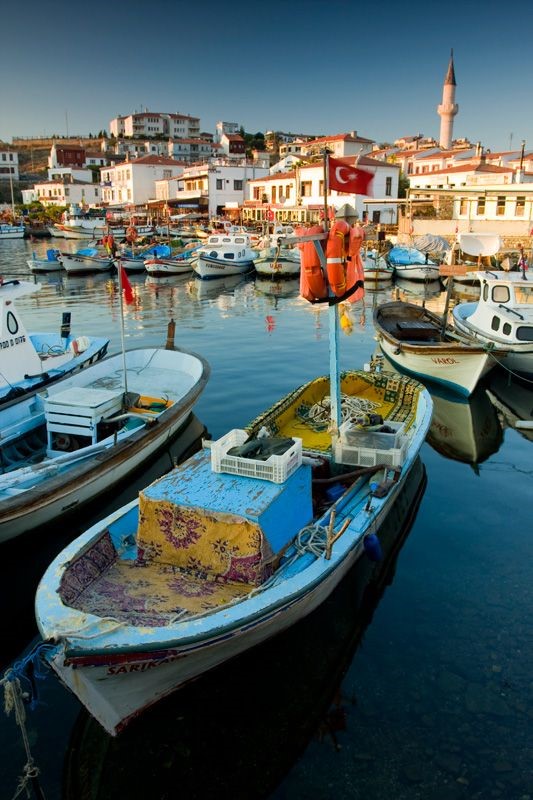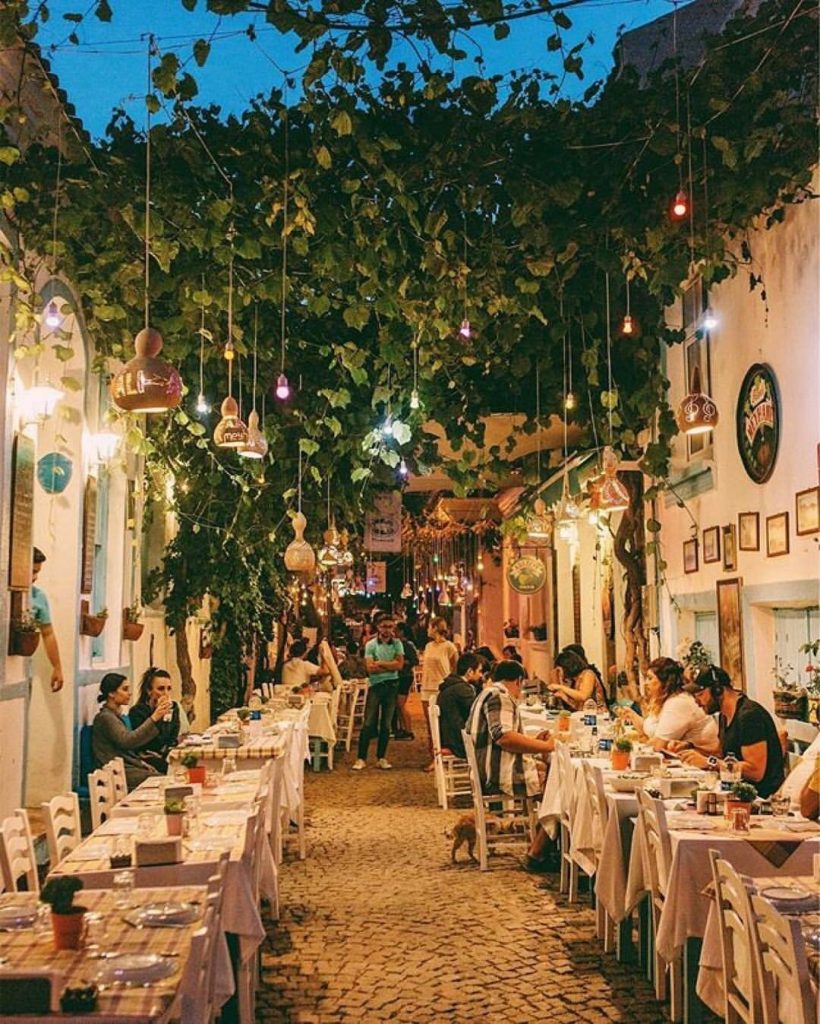Written by Ebru Ece Gulsan, Ph.D. student in Chemical Engineering
I was born and raised in Istanbul, Turkey, and spent over 20 years there before moving to the states and becoming your favorite Mediterranean in the midst of lovely New England weather. My family owns a summer house, as many Istanbullu families do, in a small coastal town right by the Aegean Sea. The town is called Geyikli, which literally means “the place with deers,” yet no one has ever seen a single deer so far. We used to go there every summer since I was 5. It is a place where locals make their own olive oil and wine. Everybody knows each other. People grow their own food in their backyards, share their highest quality produce with their neighbors, make canned tomatoes and pickles for the upcoming winter. My family and I enjoy taking the ferry to Bozcaada (Tenedos in Greek), a charming little beautiful island with its old rustic homes and colorful windowpanes, spending the days in deserted sandy beaches; and nights in local vineyards and traditional meyhanes or tavernas.

The older I became, the less time I spent in Geyikli. While I used to stay there for the duration of an entire summer in early 2000s, as I grew up, I had to prioritize summer internships and jobs over beach time. But I made sure to spend at least a few weeks to soak up the sun and reset my body before the next academic year, until 2020.
Due to some obvious reasons, I failed to visit home in the summer of 2020, the year when avoiding a visit to your family means love and respect, rather than hugging them. I missed out on not only connecting with my family members, but also the opportunity to reset myself and start fresh for the upcoming fall term. It would have been a much-needed break during this extra stressful academic year; writing my thesis proposal, battling with quals, cancelled conferences and meetings, then rewriting my thesis proposal, all peppered with the flavor of a global pandemic felt like they would never end.
I was desperate to have a beach vacation. I ended up dragging my poor boyfriend to the local beaches every single weekend, but it was not enough. It did not feel like a vacation with all the planning, remembering our masks, hand sanitizers, packing our food, and answering emails from my Principal Investigator and students.
I realized over time that what I needed was not the beach itself, but the “forced restfulness” that came from lying down under a beach umbrella with my loved ones, where my biggest concern is what to eat for my next meal, all day and every day. I needed to disconnect – whether it was on a Mediterranean beach or at my own porch in Medford.
It is especially difficult now to plan a trip to another city or get together with friends to blow off some steam. The places we can go and the people we can see are very limited, which is not what most of us expect when we need a break; so, I had to re-learn the idea of vacation and construct myself a 2020 version of it sponsored by COVID-19. Instead of thinking “what I can do in a very limited radius,” I switched my focus to the questions of “what would make me feel good about myself at this very moment” and “how I can do these things.”

I started with planning a break. I know it sounds counterintuitive; you are seeking for ways to escape from this planned work/study life of yours in the first place. But planning your breaks helps you complete your tasks in a more timely manner. Once you have a set deadline, you are more likely to get things done and feel accomplished, which helps you perceive this upcoming break as well-deserved rather than feel guilty for taking some time off.
Then I took some time to structure my break and made sure it is purposeful and enriching. Think about what kind of a break you need. Are you sleep deprived or physically exhausted? You might need some extra days to sleep in and rest your body. If you are mentally tired, it might be a better idea to choose another fun activity that suits and benefits you. For example, you can attend online events of Tufts Art Galleries or follow virtual concerts organized by the Music Department. If being outdoors energizes you, plan a hike to a less traveled mountain to disconnect from your daily life. Watch the movies you have always wanted to binge on. Schedule virtual meetings with your friend who studies abroad. Check out AirBnB live experiences. Your favorite chef might be hosting an online cooking class. The point is that scrolling through social media does not count as a break. Choose something that is entertaining yet valuable and put that on your calendar as motivation.
I added some new activities to my routine to make that break count. As graduate students, we constantly deal with projects that do not even have a set end date, and sometimes (OK, maybe most of the time) they do not go as expected. That ambiguity can be frustrating and demotivating. Hence, it is important to have some other tiny achievements in our lives. Choose some minor activities that are different from your work, such as taking a dance class, volunteering for a cause you care about, learning another language or getting into painting to remind yourself the feeling of accomplishment. Share this idea with your friends and suggest starting together. It always increases your motivation to have a buddy right next to you, even though they are connecting with you via Zoom.
Taking a vacation (even now) is so crucial for our physical and mental health, but it is so easy to overlook. It is one of those things that we know it is good for us, but we fail to actually commit to it, just like eating celery (or collard greens, or okra, you name it). We all need to relax and it is not as hard as we thought. Taking that well-deserved break will make you more efficient and productive at whatever you are doing, so go ahead and plan your next vacation in the times of Corona!
